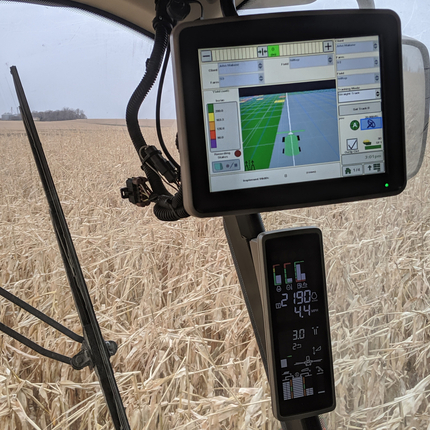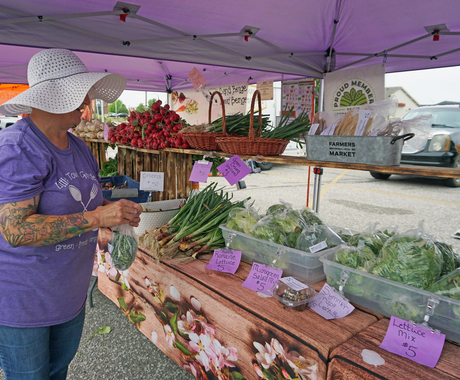By Molly Malone, former staff member
Climbing into the combine, I am met with a dashboard of dusty screens and controls. The beeps and notifications remind me data is being recorded as I collect crops.
As the combine moves along, I keep an eye on the yields and variations in quadrants. Small farmers who work the land themselves see everything with their own eyes.
Technology and software have advanced, and farmers who once had to estimate their yields now have the tools to provide more precise totals, which can improve margins and help manage inputs.
But, farmers aren’t the only ones who benefit.
To the companies providing the technology, the information is infinitely more valuable.
Returning home from the field, I open an app on my smartphone and review the data. However, the data has to first connect to the internet. When it does, the company who provided the software also has access.
I look over the user agreement. To move forward, I agree to release the data to the company, though they offer some assurances, claiming they will not use my data for things such as commodity trading, seed pricing, or packaging it for third parties, even in aggregate.
They seem to know my concerns already.
While the larger pool of information allows corporations to more accurately draw conclusions and use information to change their products and behavior, it also has the potential to create problems, two in particular.
The first stems from the fact the U.S. doesn’t federally regulate privacy and data collection as much as other countries. In some places, leaders of corporations who are negligent with data may receive jail time. In our country, those same leaders could be fined, but most are only required to disclose a breach. Patchwork legislation primarily focused on tech companies varies by state, and larger corporations often enjoy extensive freedoms. Bigger is rewarded by the U.S. government.
The second problem that we often overlook includes some simple, low-tech ways our data can be compromised. Though hackers come to mind, one example is an age-old threat—paying off an insider to help access data.
As technology advances and software continues to improve, our legislators have the responsibility to protect the people, not the corporations. Individuals and even Congress can’t be expected to know the ins and outs of every app contract. But, they can address the system as a whole, such as regulating how much data is automatically collected and making the consequences outweigh the benefits of illegally sharing information or being careless.
While there are risks, there’s also a potential social benefit to the collective data process—conservation. Soil health and watershed data can be measured and managed on a community scale in addition to your own farm. By gathering data collectively, the impact is multiplied.
This past year has been a tough one for the farm community. The weather has been wet and cold. Some crops were planted late, thus extending harvest, and, in some cases, crops never went in.
Uncertainty with Mother Nature has always been part of the industry and, for the most part, farmers have persevered. As technology becomes more prevalent, that same spirit will prevail. However, let’s hope the new technology will help our operations, rather than add another obstacle.



